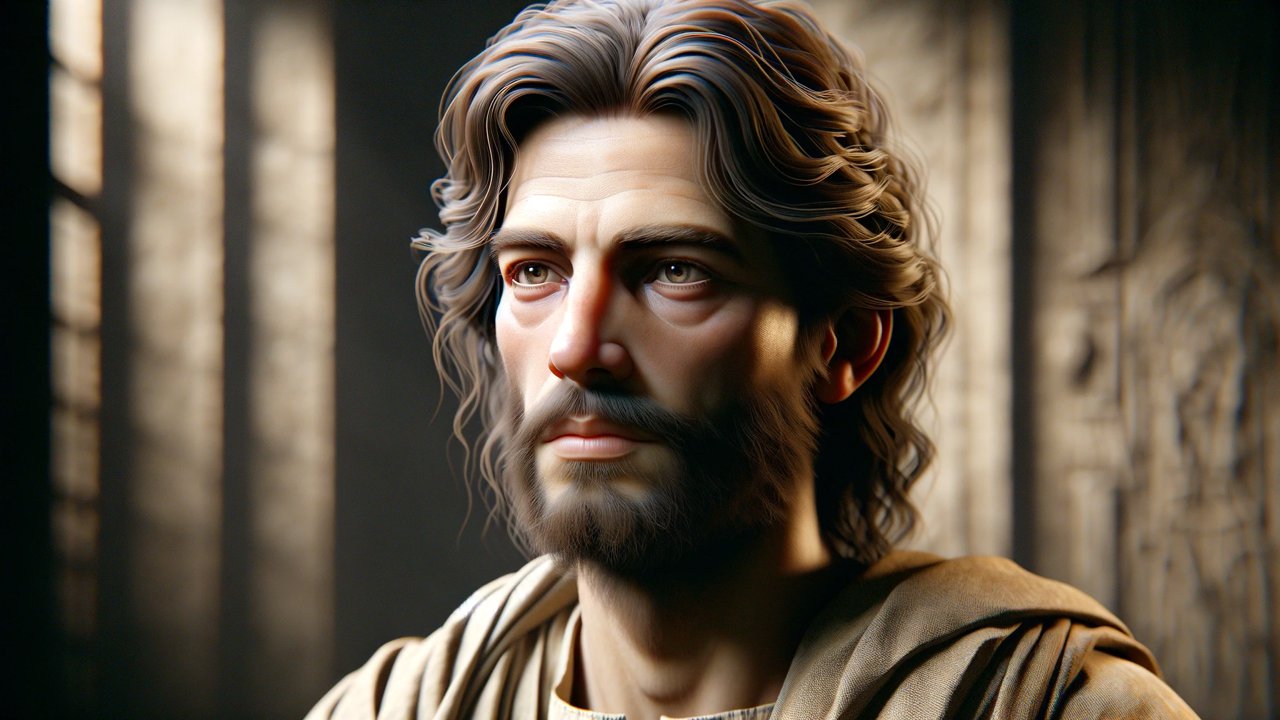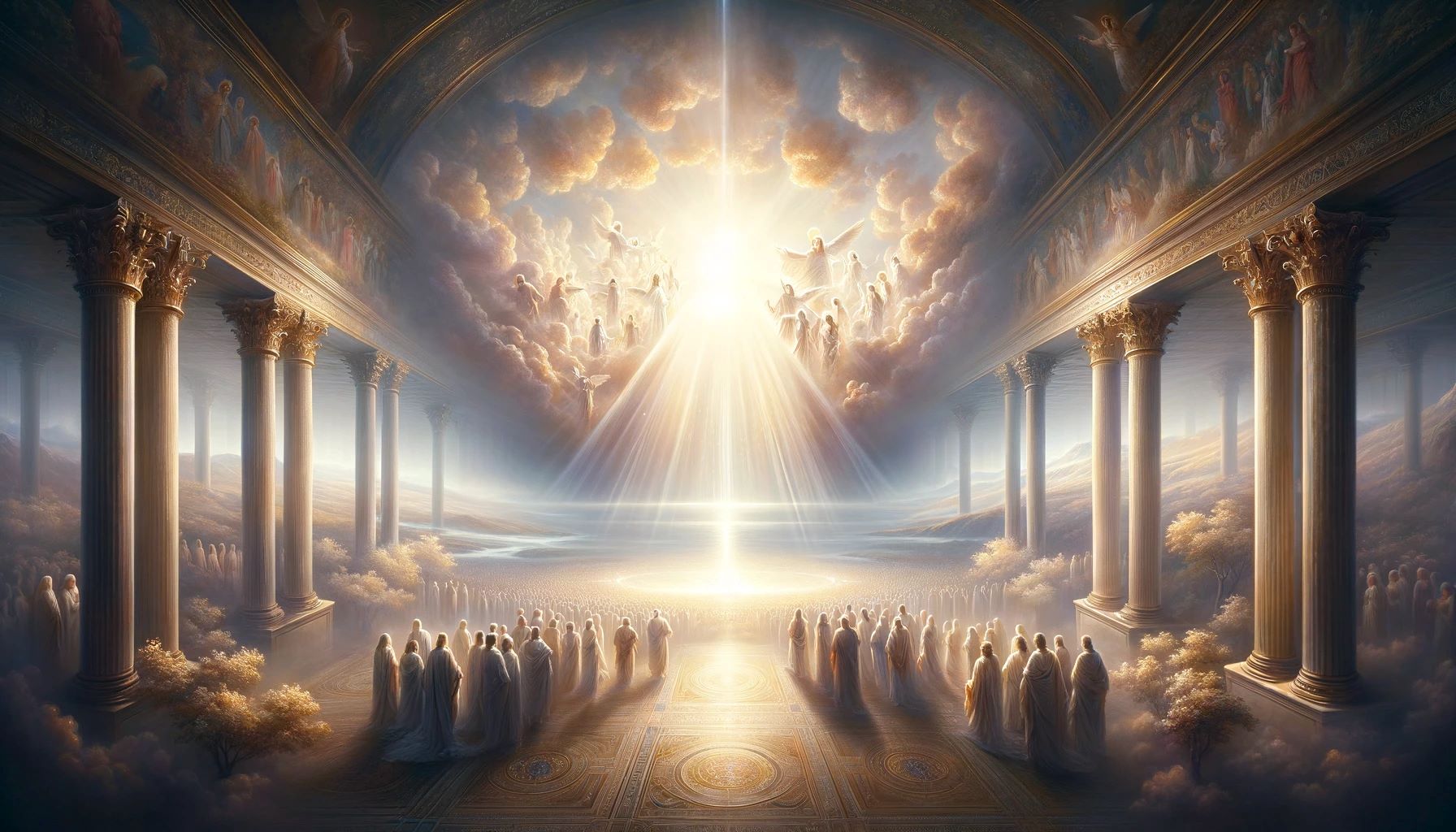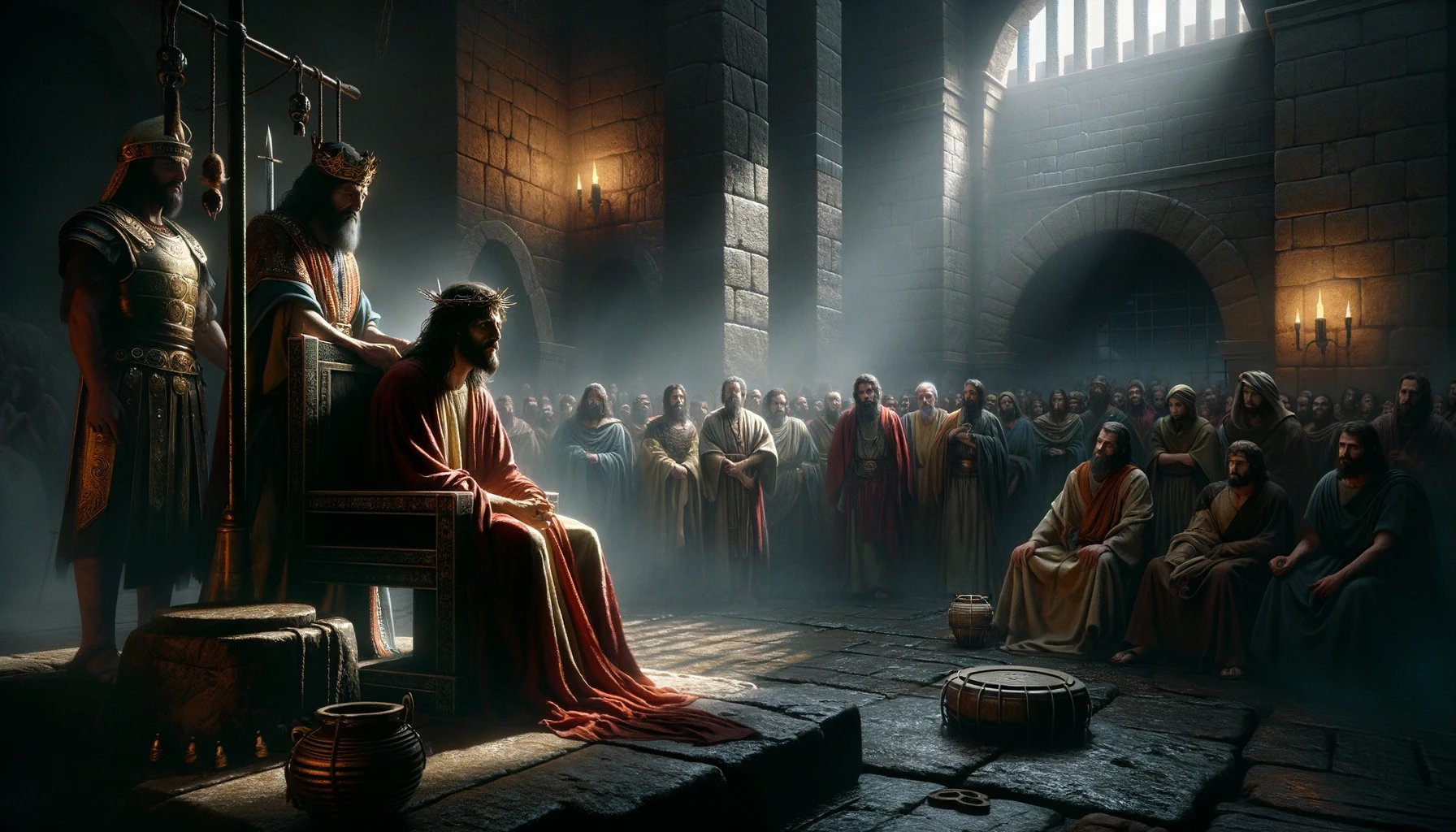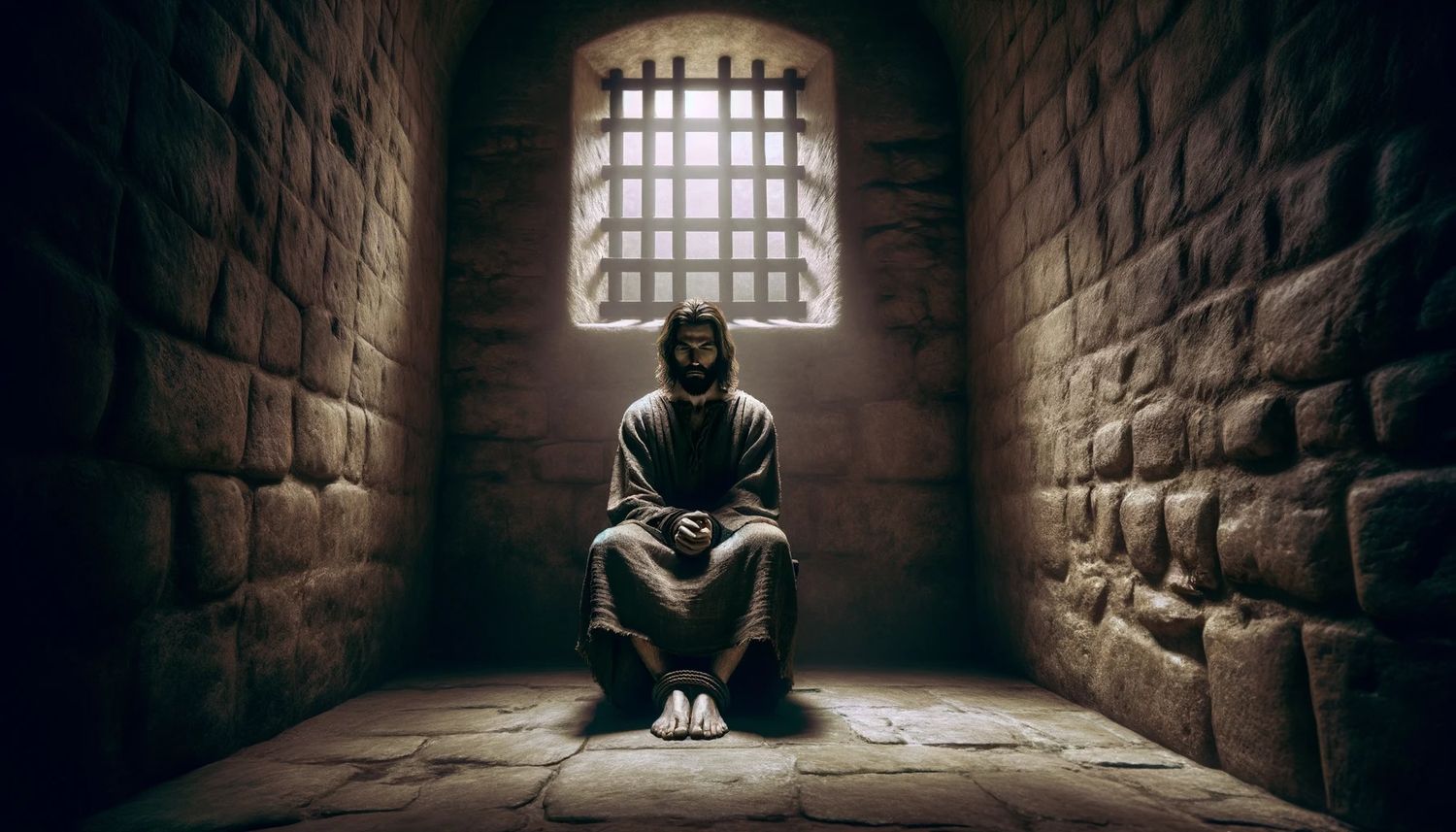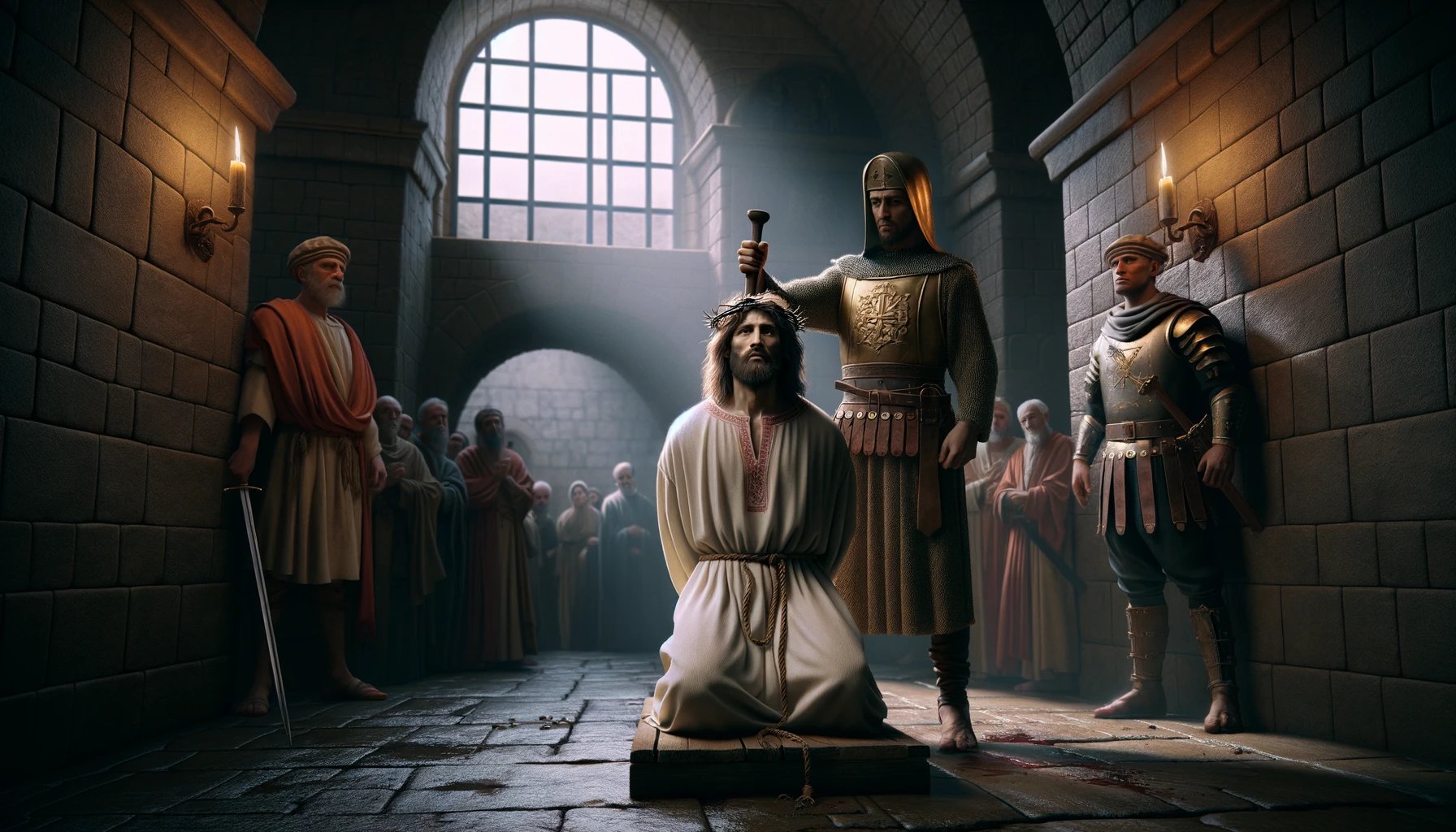Home>Theology and Spirituality>When Did St John The Baptist Die
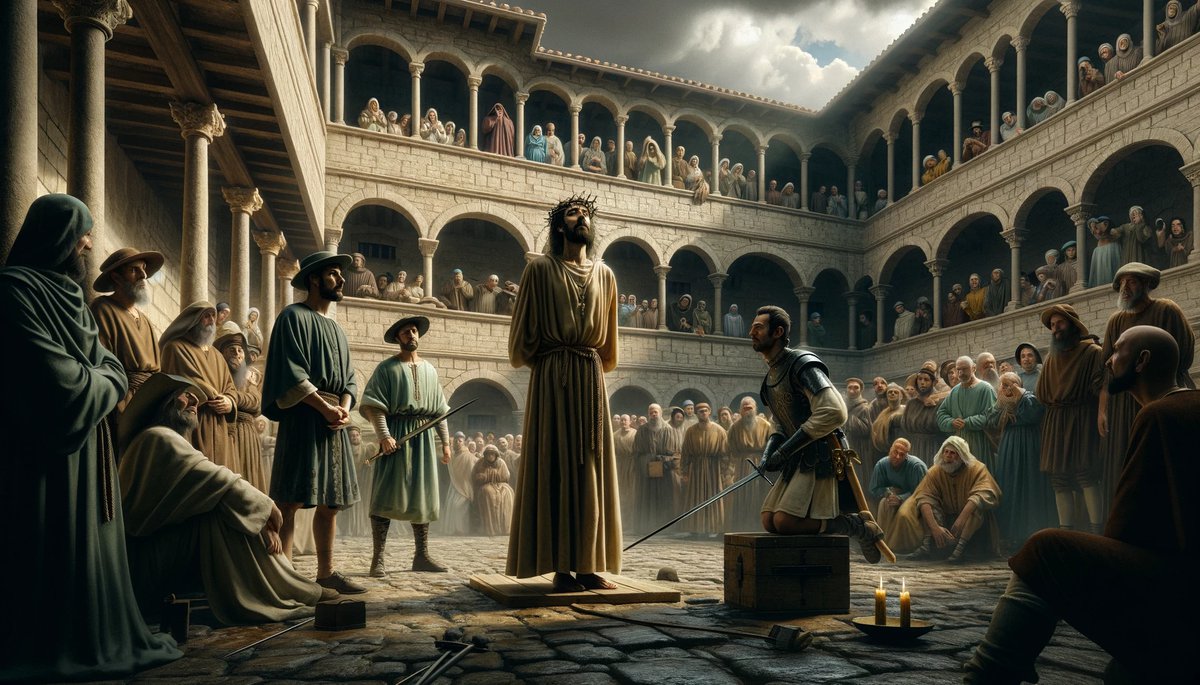

Theology and Spirituality
When Did St John The Baptist Die
Published: February 21, 2024
Peter Smith, Editorial Director at Christian.net, combines deep insights into faith, politics, and culture to lead content creation that resonates widely. Awarded for his contributions to religious discourse, he previously headed a major organization for religious communicators, enhancing dialogue on faith's societal impacts.
Discover the historical account of St. John the Baptist's death and its significance in theology and spirituality. Explore the impact of his martyrdom and legacy.
(Many of the links in this article redirect to a specific reviewed product. Your purchase of these products through affiliate links helps to generate commission for Christian.net, at no extra cost. Learn more)
Table of Contents
Introduction
St. John the Baptist, a pivotal figure in Christianity, is revered for his role as the herald of Jesus Christ. His life, teachings, and ultimate sacrifice have left an indelible mark on the spiritual landscape. The circumstances surrounding his death have been a subject of fascination and scholarly inquiry, prompting various theories and speculations. Exploring the timeline of St. John the Baptist's life and the events leading to his demise offers a profound insight into the historical and spiritual significance of this revered figure. In the subsequent sections, we will delve into the life of St. John the Baptist, the events surrounding his death, and the diverse theories regarding the date of his passing. This exploration will shed light on the enduring legacy of St. John the Baptist and the impact of his teachings on the Christian faith.
Read more: How Did The John The Baptist Die
The Life of St John the Baptist
St. John the Baptist, also known as John the Forerunner, holds a significant place in Christian history and theology. His life is intricately intertwined with the narrative of Jesus Christ, and his role as the herald of the Messiah is foundational to the Christian faith.
John was born to elderly parents, Zechariah and Elizabeth, both of whom were descendants of priestly families. His miraculous conception was foretold by the angel Gabriel, who appeared to Zechariah while he was performing his priestly duties in the temple. This divine announcement marked the beginning of John's extraordinary life.
As he grew, John led a life of asceticism and contemplation in the wilderness, embodying humility and devotion. His attire of camel's hair and a leather belt, along with a diet of locusts and wild honey, reflected his renunciation of worldly comforts and his singular focus on spiritual pursuits.
John's ministry was characterized by a call to repentance and the proclamation of the imminent arrival of the Messiah. He baptized people in the Jordan River as a symbol of spiritual purification and readiness for the coming of the Christ. Multitudes flocked to John, drawn by his compelling message and unwavering commitment to righteousness.
One of the most profound aspects of John's life was his recognition of Jesus as the long-awaited Messiah. When Jesus approached him to be baptized, John humbly acknowledged Jesus' divine nature, declaring, "Behold, the Lamb of God, who takes away the sin of the world!" This pivotal moment solidified John's role as the forerunner of Christ, paving the way for the unfolding of God's redemptive plan.
Despite his revered status, John fearlessly confronted the moral failings of the ruling authorities, including Herod Antipas, which ultimately led to his imprisonment. His unwavering dedication to truth and righteousness exemplified the essence of his ministry and the depth of his spiritual convictions.
The life of St. John the Baptist serves as a testament to unwavering faith, selfless devotion, and a resolute commitment to divine purpose. His legacy continues to inspire countless individuals to seek spiritual renewal, embrace humility, and prepare their hearts for the transformative power of the Gospel.
In the subsequent sections, we will delve into the events surrounding the death of St. John the Baptist and the diverse theories regarding the date of his passing, shedding light on the enduring impact of his teachings on the Christian faith.
The Death of St John the Baptist
The death of St. John the Baptist stands as a poignant and tragic episode in Christian history, marked by political intrigue, moral courage, and unwavering faith. The circumstances leading to his demise are deeply intertwined with the dynamics of power and the clash between spiritual righteousness and worldly authority.
According to the New Testament accounts, the events that culminated in John's death were set in motion by his vocal condemnation of Herod Antipas, the ruler of Galilee and Perea. John fearlessly denounced Herod's unlawful marriage to Herodias, the wife of his brother Philip, citing it as a flagrant violation of Jewish law and moral principles. Herodias, incensed by John's outspoken criticism, harbored a deep-seated grudge against him and sought an opportunity for retribution.
The pivotal moment leading to John's tragic end unfolded during a lavish banquet held by Herod to celebrate his birthday. Herodias' daughter, Salome, captivated the assembled guests, including Herod himself, with her mesmerizing dance. In a gesture of ostentation and to impress his guests, Herod made a rash promise to grant Salome any request, up to half of his kingdom. Prompted by her vengeful mother, Salome demanded the head of John the Baptist on a platter.
Despite his inner turmoil, Herod, bound by his oath and the fear of losing face in front of his guests, reluctantly acceded to Salome's gruesome request. John, imprisoned for his unwavering commitment to truth and righteousness, met his tragic end as his head was delivered on a platter, a chilling manifestation of Herodias' vindictive agenda.
The death of St. John the Baptist serves as a stark reminder of the clash between spiritual integrity and the corrupting influence of power. His unwavering commitment to truth, his fearless denunciation of moral transgressions, and his willingness to endure persecution for the sake of righteousness embody the essence of his profound impact on Christian history and spirituality.
The events surrounding John's death underscore the enduring relevance of his legacy, inspiring believers to uphold moral courage, confront injustice, and remain steadfast in their commitment to divine truth, even in the face of adversity.
In the subsequent section, we will explore the diverse theories and speculations regarding the date of St. John the Baptist's death, shedding light on the enduring impact of his teachings on the Christian faith.
Theories and Speculations on the Date of St John the Baptist's Death
The date of St. John the Baptist's death has been a subject of scholarly debate and historical inquiry, with various theories and speculations seeking to ascertain the precise timing of this pivotal event. While the New Testament provides a vivid account of the circumstances surrounding John's death, the exact date has been a point of conjecture, prompting diverse perspectives and interpretations.
One prevalent theory revolves around the historical context of Herod Antipas' reign and the events leading to John's imprisonment and subsequent execution. Scholars and historians have meticulously examined the timeline of Herod's rule, the political dynamics of the region, and the interactions between Herod, Herodias, and John the Baptist to discern the probable timeframe of John's death. This approach involves a comprehensive analysis of historical records, ancient texts, and archaeological findings to construct a plausible chronology of the events culminating in John's tragic demise.
Another compelling avenue of speculation pertains to the correlation between the death of St. John the Baptist and the broader narrative of Jesus Christ's ministry and crucifixion. Some scholars have sought to align the timeline of John's death with key milestones in Jesus' life, drawing parallels between the fate of the two figures and their interconnected roles in the unfolding of God's redemptive plan. This perspective delves into the intricate interplay of historical events and spiritual significance, aiming to situate John's death within the broader context of the Christian narrative.
Furthermore, the exploration of ancient traditions, early Christian writings, and apocryphal accounts has contributed to the rich tapestry of theories regarding the date of St. John the Baptist's death. These sources offer valuable insights into the cultural, religious, and socio-political milieu of the time, providing nuanced perspectives on the circumstances surrounding John's martyrdom and its enduring impact on the early Christian communities.
Amidst the diverse theories and speculations, the quest to unravel the precise date of St. John the Baptist's death underscores the profound significance of his legacy and the enduring impact of his ministry. While the exact date may remain a subject of conjecture, the spiritual and historical resonance of John's life and sacrifice continues to inspire contemplation, scholarly inquiry, and a deep appreciation for his pivotal role in the tapestry of Christian history.
In essence, the exploration of the theories and speculations surrounding the date of St. John the Baptist's death invites a profound reflection on the enduring legacy of this revered figure and the timeless relevance of his teachings in shaping the spiritual landscape of Christianity.
Conclusion
The life and death of St. John the Baptist stand as a testament to unwavering faith, moral courage, and a resolute commitment to divine purpose. His unwavering dedication to truth, his fearless denunciation of moral transgressions, and his willingness to endure persecution for the sake of righteousness embody the essence of his profound impact on Christian history and spirituality.
The enduring legacy of St. John the Baptist transcends the confines of time and space, inspiring believers to uphold moral courage, confront injustice, and remain steadfast in their commitment to divine truth, even in the face of adversity. His pivotal role as the herald of Jesus Christ, his unwavering proclamation of repentance, and his ultimate sacrifice serve as a beacon of spiritual fortitude and unwavering devotion.
The diverse theories and speculations surrounding the date of St. John the Baptist's death underscore the profound significance of his legacy and the enduring impact of his ministry. While the exact date may remain a subject of conjecture, the spiritual and historical resonance of John's life and sacrifice continues to inspire contemplation, scholarly inquiry, and a deep appreciation for his pivotal role in the tapestry of Christian history.
In essence, the exploration of the theories and speculations surrounding the date of St. John the Baptist's death invites a profound reflection on the enduring legacy of this revered figure and the timeless relevance of his teachings in shaping the spiritual landscape of Christianity. The profound impact of St. John the Baptist's life and death resonates through the annals of Christian history, serving as a source of inspiration, contemplation, and spiritual renewal for generations to come.



